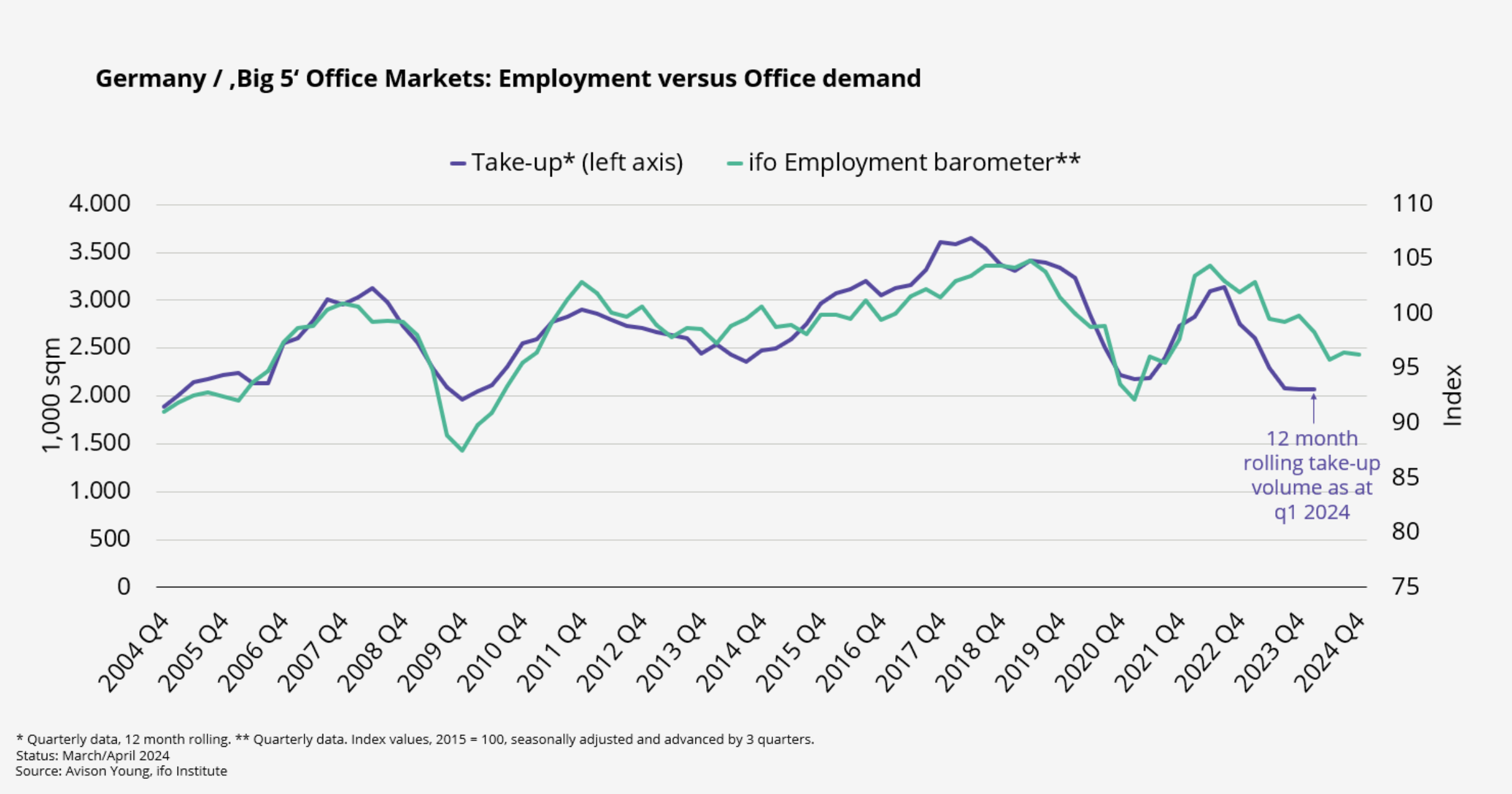Employment versus Office Demand

- Various “Employment Barometers” reflect the developments on the labour market. The Employment Barometer of the ifo Institute – Leibniz Institute for Economic Research at the University of Munich illustrates the personnel planning of major business sectors in Germany. It has been a good leading indicator for ‘predicting’ the office market take-up in the Big 5 German real estate markets – until 2022. Since then, there has been a pronounced decoupling of both indicators.
- Before the Covid 19 pandemic, one additional office job more or less equated to one additional desk in the office, because only about 10% of all employees** worked remote or from home at least partially***. During the Covid 19 lockdowns, remote working jumped to an all-time high, and has stabilised around 25% since 2022. Companies introduced hybrid work concepts and – on balance – they have been shrinking their office space footprint since then, among other means by renting our less space than before. This trend will continue over the next few years.
- Another reason for the disproportionate decline of office take-up is the strong momentum of rental contract extensions, which however do not count into the take-up statistics, and hence disguise some degree of demand activity. But those extensions are common in times of economic uncertainty. In our view, the divergence of the two parameters is predominantly a consequence of renting out smaller offices than before; a presently general hesitancy when it comes to making long-term (locational) decisions; and the fact that many negotiations currently take extremely long.
- Since the German economy is eventually on the path to recovery, albeit slow, we expect both indicators to show a sideways movement or gradually trend upwards.
* Berlin, Hamburg, Dusseldorf, Frankfurt, Munich ** Employees subject to statutory welfare contributions. *** Average of all surveyed business sectors.
April 23, 2024
